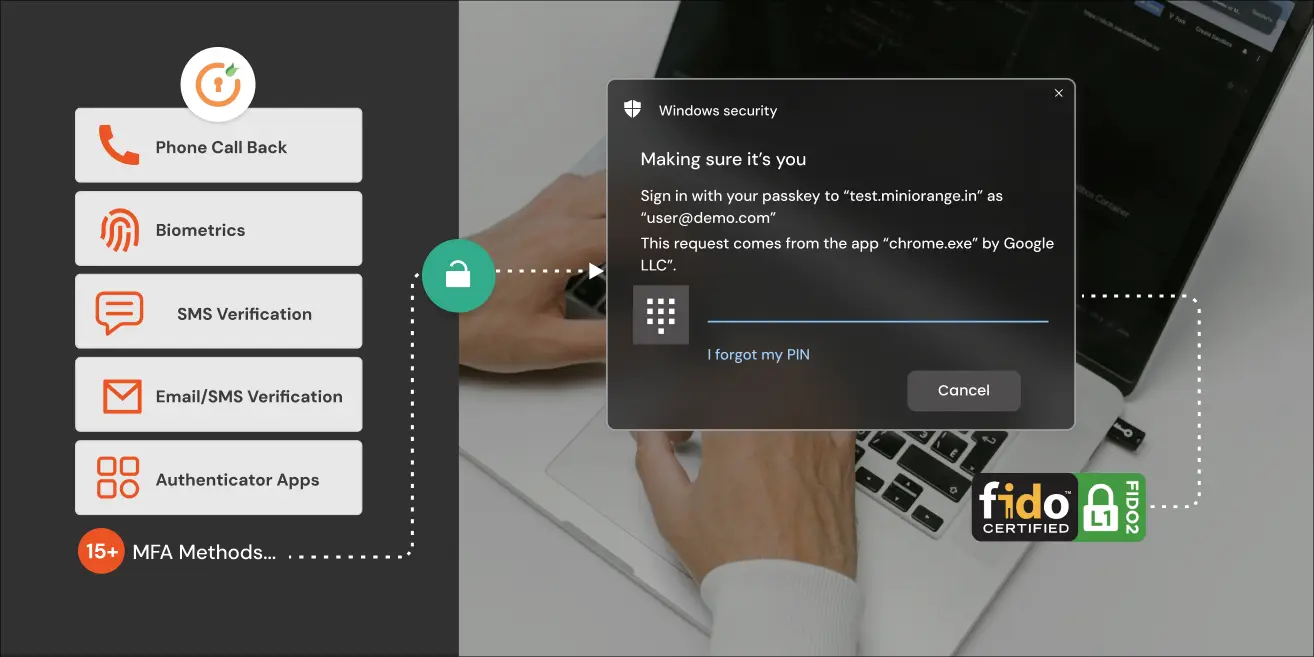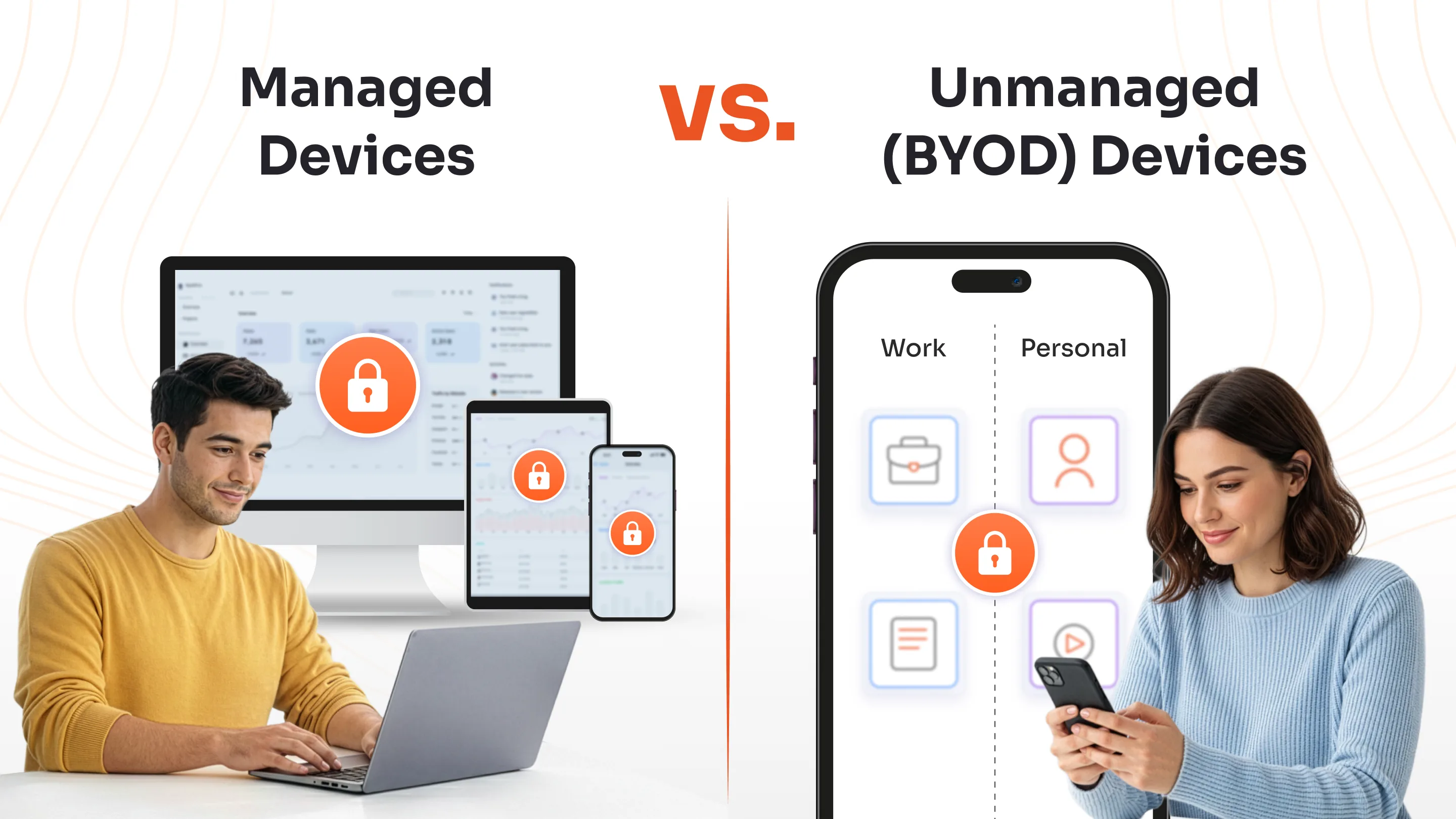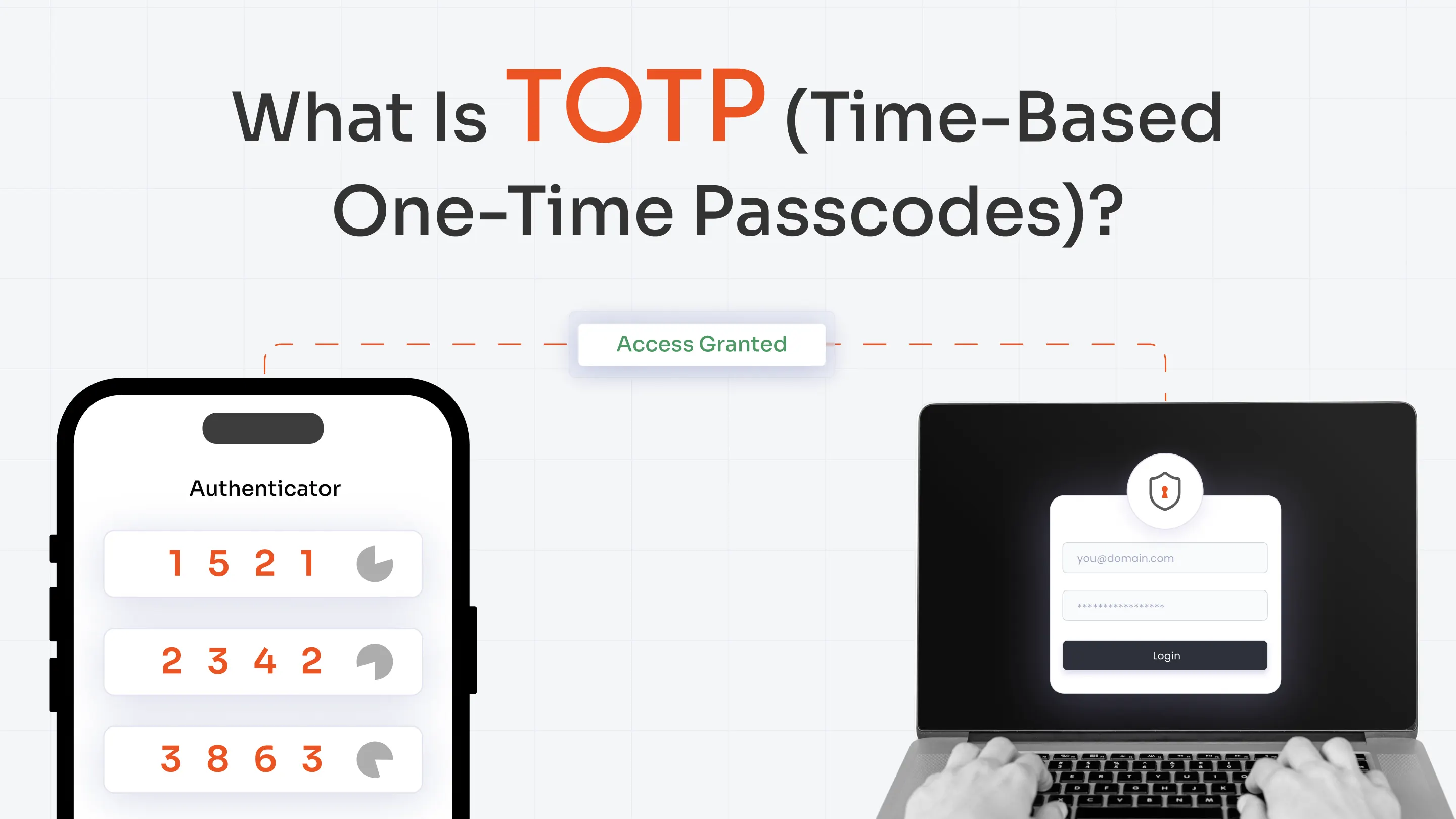We log into tons of apps each day, running on digital identities. With just one click, you can access thousands of apps without breaking a sweat. However, digital identities bring with them cyber threats, which are growing sharper each day, and compliance is getting tighter. So, who is the right person to trust to safeguard your digital identities?
As organizations, you collect, store, analyze, and process sensitive data, which needs to be safeguarded with the right tech and tools. Identity and Access Management (IAM) vendors or providers bring to you the right solutions to secure identities and allow authorized access to apps and resources.
From Single Sign-On (SSO) and Multi-Factor Authentication (MFA), to Privileged Access Management (PAM) and Automated Provisioning, IAM providers like miniOrange have all the resources to protect your identities.
Now, let’s look at the leading IAM vendors that are dominating the cybersecurity field worldwide.
Leading IAM Vendors in 2025
The global IAM market is anticipated to garner a revenue of $41.52 billion by 2030 at a CAGR of 12.6% from 2023 to 2030. Let’s look at the key players who are contributing to the market growth.
1. miniOrange
Based in Pune, India, miniOrange is a globally recognized player in the field of Identity and Access Management (IAM) solutions, covering a range of industries such as healthcare, banking and finance, education, e-commerce, and more.
miniOrange also extends its cybersecurity expertise to varied CMS platforms such as WordPress, Drupal, and Joomla. The company also provides security solutions for Magento and Shopify platforms, along with Atlassian, and Learning Management Systems (LMS) like Moodle.
Pros
- miniOrange IAM products integrate with both cloud and on-premise environments.
- Simplifies the login process with SSO solutions that are compatible with all protocols, such as SAML, OAuth, and OpenID Connect (OIDC).
- miniOrange SSO solutions are compatible with multiple Identity Providers (IdPs) such as Google, Microsoft, AWS, and more.
- Offers layered security in the form of 15+ MFA methods (email/SMS-based OTP, push notifications, biometric authentication, Google/Microsoft Authenticator, and more).
- Adheres to global regulatory standards such as HIPAA, GDPR, SOC, and more.
- miniOrange offers a flexible pricing plan that suits the requirements of all business sizes, with a starting price of $2/user/month.
Cons
- There’s scope for including intelligent features for rapid user authentication and authorization.
Take a deep dive into miniOrange IAM products.
2. Okta
Okta is one of the popular IAM providers, with a strong focus on boosting security access across multiple platforms and simplifying user access. This platform is known for its cloud architecture that lets organizations manage user identity access.
Pros
- Integrates with varied apps and services, making it an ideal option for diverse IT settings such as cloud, on-premise, and hybrid.
- Offers security solutions such as SSO, MFA, and user lifecycle management.
- Provides API security via solid authorization and authentication mechanisms for controlled backend access.
- Has a strong customer support system in place.
Cons
- It can have a complicated and slightly higher pricing structure, which is not suitable for small businesses. Its starter package sells at $6/user/month, and the essentials package at $17/user/month.
- It may become complicated to set up and use (for companies without a strong IT team), as Okta has several features.
- Okta’s SSO works best with applications that support SSO, but may not be compatible with older or customized apps.
3. OneLogin
OneLogin is known for its IAM solutions and is developed to simplify business login processes, amplifying efficiency and security of the systems at the same time.
Pros
- Ease-of-use of OneLogin lets users smoothly access their essential apps.
- OneLogin’s SSO and MFA solutions offer policy-based access control.
- Admins can manage their apps from a centralized dashboard, offering security alarms for any disruptions.
Cons
- Reports of bugs and outages have been highlighted by the users on review portals like G2.
- There’s potential for improving synchronization in user access and profiles, as it hampers operations.
- It can be an expensive solution, with its advanced and expert packages priced at $4/user/month and $10/user/month respectively.
4. Ping Identity
Ping Identity is a leading provider of Identity and Access Management (IAM) solutions known for its flexibility, security, and innovation.
Pros
- The Ping Identity platform makes use of an AI engine called Helix, offering built-in intelligence for smarter protection.
- Offers personalized and safe experiences for diverse industries, including healthcare, finance, government, and media.
- Solutions are developed to reduce friction for users while maintaining high security, supporting innovation without compromising protection.
Cons
- Customization for complicated B2B and professionals can be challenging in the initial phases.
- May need technical support for configuration.
- Relatively expensive, with its essential package priced at $35k annually and its plus package priced at $50k annually.
5. Microsoft Entra ID
Previously known as Azure Active Directory (AD), Microsoft Entra ID, an IAM product, is designed to protect and manage identities for both on-premise and cloud architectures.
Pros
- A perfect choice for businesses using only Microsoft products, as Entra ID’s SSO product integrates with Microsoft 365 and connected apps.
- Comes with built-in defender tools such as Intune, Defender, and more.
- Adds extra security with MFA products and adaptive security features for continuous threat detection.
Cons
- Implementation and configuration may require a deep learning curve.
- For organizations using non-Microsoft tools, integration with Entra ID can prove to be challenging.
- Pricing structure for advanced functions like Governance or P2 can be relatively costly.
6. CyberArk
CyberArk, formerly known as Idaptive, combines identity management and workforce access. Their IAM products offer lifecycle management, simplify user access, and provide auditing to meet compliance.
Pros
- Comprises Customer Identity Access Management (CIAM) tools.
- Integrates with cloud, on-premise, and hybrid architectures, and other security tools.
- Offers session recording, reporting, and auditing capabilities to meet various compliance requirements.
Cons
- Due to a wide range of features offered, not every one of them will be relevant to the users.
- CyberArk can be slightly expensive compared to its competitors, making it unsuitable for small or medium businesses.
7. SailPoint
SailPoint is a recognized leader in identity governance and administration (IGA), providing a unified platform for managing and securing enterprise identities.
Pros
- SailPoint offers centralized management for all identities: human and machine.
- The dashboard offers a simplified view, making it easier for users to find and use features.
- Admins or managers can easily check who has access to which apps, decreasing assumptions and threat levels.
Cons
- The initial setup may require additional technical knowledge and planning to avoid mistakes.
- Access to features depends on licensing groups, as advanced features are available only with specific license plans.
8. JumpCloud
JumpCloud offers a unified, cloud-native platform for IAM with an emphasis on device management and simplified administration, but it may have limitations in deep enterprise features and premium support.
Pros
- Offers IAM products for Linux, Windows, and macOS environments.
- Implements zero trust model with SSO, MFA, policy enforcement, and passwordless authentication.
- Easy-to-use interface for better navigation.
Cons
- Involvement of a steep learning curve for those with cloud-based directory systems.
- Expensive for larger enterprises due to the per-user pricing model and the need for add-ons.
9. ManageEngine AD360
ManageEngine AD360 is known as one of the top IAM solutions for Windows Active Directory systems.
It is known to offer a wide range of identity and access management tools on a single console, which includes user behavior analytics, 360-degree user provisioning, anomaly detection, AI-driven access insights, and more.
Pros
- Around 1000+ built-in reports offer information on activities in cloud and on-premise directories and apps.
- Exports reports in HTML, PDF, CSV, and XLS formats.
- Offers simple installation and integration with enterprise apps, including SIEM, HRMS, and ITSM.
Cons
- Modular pricing can increase expenses substantially.
- Comes with a complicated user interface, which can be slow, hampering usage.
10. FusionAuth
FusionAuth is designed for developers and offers a comprehensive suite of features, such as MFA, single sign-on, and user management.
Pros
- FusionAuth’s SSO function is compatible with standard protocols, like OpenID Connect (OIDC) and OAuth 2.0, and integrates with social logins.
- Manages user logins, password resets, controls, and registrations with features like Role-Based Access Control (RBAC).
- Built around RESTful APIs so IAM products can be integrated into any framework or application.
Cons
- Its single-tenant function indicates a need for a more direct setup and management compared to multi-tenant SaaS solutions.
- Users may find user and tenant settings confusing during the initial phases.
How to Choose an IAM Vendor?
Selecting the right Identity and Access Management (IAM) vendor is critical for safe, scalable, and efficient operations.
- Understand Your Organization's Needs: Define core requirements (SSO, MFA, provisioning, compliance), scale of operations, regulatory needs, and unique use cases.
- Scrutinize Integration Abilities: Make sure the IAM solutions can connect with your existing applications, directories (AD, LDAP, cloud apps), and workflows.
- Scalability and Flexibility: Choose solutions that can grow with your organization, supporting cloud, on-premise, and hybrid architectures without heavy reconfiguration.
- User Experience and Support: Prioritize vendors offering intuitive interfaces, self-service features, and customer support, especially during deployment and troubleshooting.
- Compliance and Security: Select IAM providers with security controls (Zero Trust, adaptive MFA) and tools to support data privacy standards like GDPR and HIPAA.
- Total Cost of Ownership: Compare pricing, ongoing support fees, and the need for external services or advanced modules before committing.
Benefits of Choosing miniOrange as an IAM Vendor
miniOrange delivers a strong suite of IAM solutions for modern organizations seeking flexible, cost-effective, secure identity management.
- Easy Integration: Over 6,000+ pre-built integrations for popular apps such as Salesforce, Google Workspace, Azure AD, etc., with support for industry-standard protocols (SAML, OAuth2, OIDC, SCIM).
- Top-Rated Support: Provides 24/7 global customer support and onboarding guidance for all deployment models for faster problem resolution.
- Comprehensive Features: Offers SSO, adaptive MFA (15+ authentication methods), lifecycle management, risk-based access, and password vault, accommodating a wide range of security scenarios.
- Flexible Deployment Options: Supports cloud, on-premise, and hybrid models for enterprises of all sizes, making transitions and integration simple.
- Meets Compliance Requirements: Built-in access governance, automated provisioning, and audit trails support regulatory needs for data protection and privacy standards.
Conclusion
miniOrange stands out for its extensive integration ecosystem, ease of deployment, adaptive multi-factor authentication, and reliable 24/7 support, making it a competitive choice for organizations seeking both robust security and a practical user experience in their IAM journey.
Careful vendor selection should align IAM features with business needs, integration plans, and compliance requirements for a future-ready, secure identity strategy.
FAQs
Is miniOrange’s IAM solution easy to set up and use?
Users consistently rate the platform’s deployment as straightforward, with intuitive dashboards and minimal maintenance requirements.
Can IAM solutions integrate with Active Directory, LDAP, and cloud directories?
Yes, IAM solutions support AD, LDAP, Google Workspace, Azure AD, and many others for better user management and provisioning. This feature is readily available with the miniOrange IAM products.
Are there resources or training for new users?
Yes, there’s documentation, integration guides, live onboarding sessions, and access to knowledge bases for technical help offered by the IAM vendors.




Leave a Comment